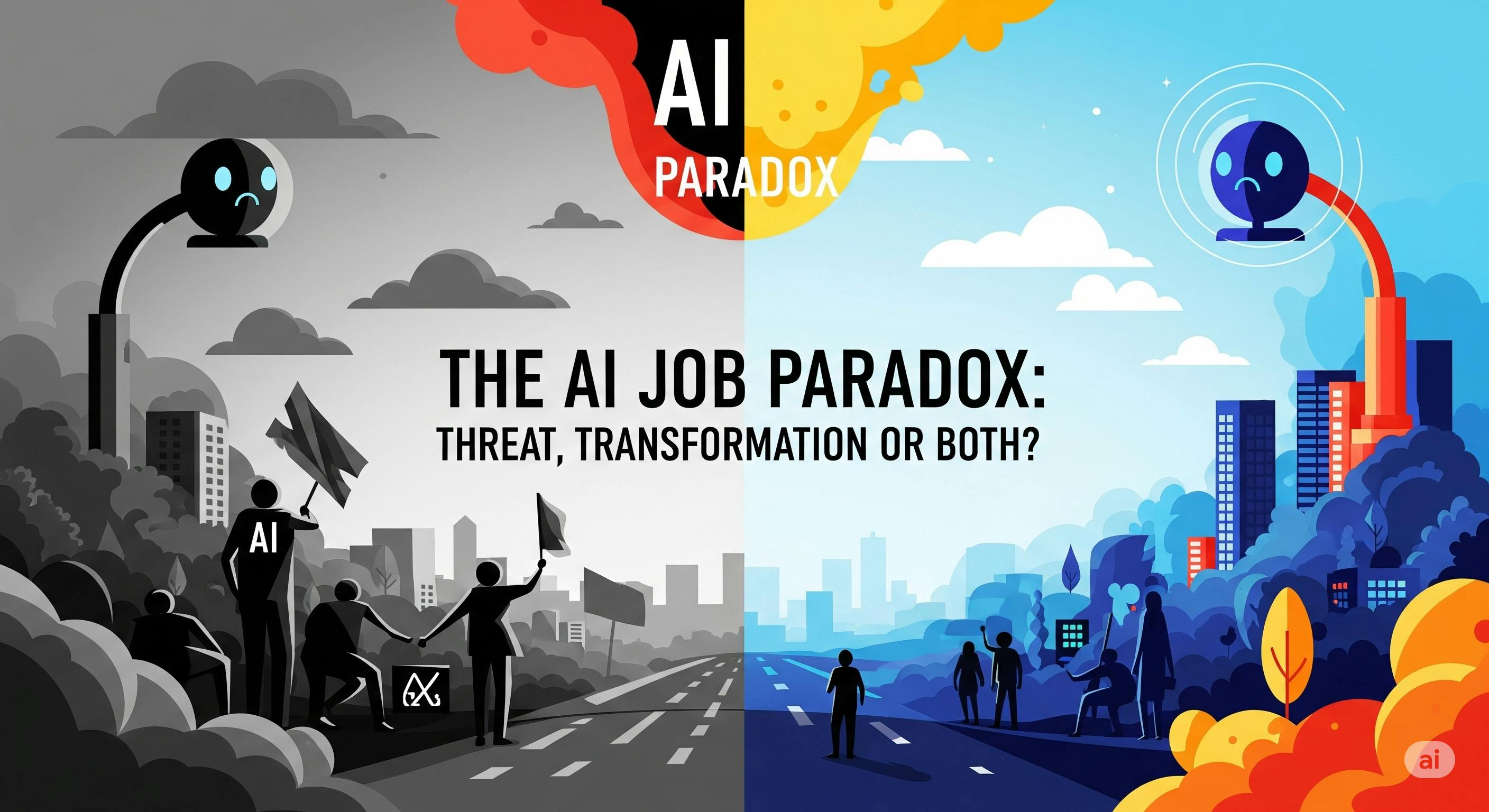The debate around Artificial Intelligence and its impact on the workforce has been reignited, fueled by recent stark warnings from prominent industry leaders. Last week, Anthropic CEO Dario Amodei sent ripples through the business world with his prediction that AI could significantly disrupt the labor market, particularly for white-collar jobs.
This has intensified the ongoing discussion: is AI a job-ending threat, or a powerful tool for augmentation and efficiency? Let's explore both perspectives, backed by data.
The Case for Disruption: A Warning from the Top
Echoing a sentiment of caution, Anthropic's CEO Dario Amodei reportedly suggested that AI could automate a substantial portion of tasks currently performed by humans, potentially leading to significant job displacement in the coming years.
Amodei's perspective, as highlighted in recent reports, suggests that:
as many as 50% of entry-level white-collar jobs could be at risk within the next five years, with a potential rise in overall unemployment to between 10% and 20%.
He emphasized the responsibility of AI developers to be transparent about these potential societal shifts.
This viewpoint is not without supporting data. Research from various institutions indicates a tangible impact:
- Bloomberg research has indicated that specific roles face high automation potential, with 53% of market research analyst tasks and 67% of sales representative tasks being susceptible to AI-driven automation.
- The "Future of Jobs Report 2025" by the World Economic Forum (WEF) found that 41% of employers surveyed globally anticipate reducing their workforce due to AI automation in the coming five years. While reports of specific 2025 layoff numbers directly attributable to AI vary, the trend of companies restructuring and investing in AI, leading to job changes, is a documented concern.
- Observations in the tech sector itself show a shift, with some reports indicating a decrease in hiring for new graduates by major tech firms, partly attributed to the rising capabilities of AI in handling entry-level tasks.
This perspective paints a picture where AI's increasing sophistication leads to a direct replacement of human labor in many routine and even some complex cognitive tasks, necessitating a proactive approach to reskilling and societal safety nets.
The Counterpoint: AI as an Enabler of Human Potential
Conversely, a strong argument exists that AI will primarily serve as an augmentation tool, empowering human workers rather than wholesale replacing them. This viewpoint suggests that AI will handle repetitive, time-consuming tasks, freeing up human capital to focus on higher-value strategic thinking, creativity, and complex problem-solving – areas where human nuance and emotional intelligence remain paramount.
Data supporting this more optimistic outlook includes:
- A study by the St. Louis Fed in late 2024 found that 28% of workers were already using generative AI, reporting an average time saving of 5.4% of their work hours. For an individual working 40 hours a week, this translates to over two hours freed up for other tasks.
- Further reinforcing this, an AIPRM survey revealed that 90% of workers using AI claimed it helped them save time, and 85% felt it allowed them to focus on their most important work. This suggests a direct boost to productivity and efficiency.
- The World Economic Forum itself, while acknowledging displacement, also projects that AI and related information processing technologies are expected to create 11 million jobs globally while displacing 9 million others, indicating a net positive, albeit with significant transition. Another forecast cited by PatentPC suggested AI could displace 85 million jobs by 2025 but create 97 million new roles.
- In specialized fields like software development, the impact of AI as an assistant is notable. Some reports indicate that programmers using AI tools have seen productivity boosts of over 100% in the number of projects they can handle.
This perspective emphasizes a symbiotic relationship between humans and AI, where technology enhances human capabilities, leading to new job roles focused on AI management, ethics, and creative applications.
Navigating the Unfolding AI Revolution
The reality of AI's impact on jobs will likely be a complex interplay of both displacement and augmentation. Certain roles and tasks will undoubtedly be automated, requiring individuals and organizations to adapt. However, AI also presents an unprecedented opportunity to enhance productivity, create new industries, and allow humans to concentrate on more fulfilling and strategically important work.
As a managing director at a VML (WPP), and with my background at Amazon, I have seen firsthand how technology can reshape industries. The key lies not in resisting technological advancement, but in strategically preparing for it. This involves fostering a culture of continuous learning and upskilling, investing in understanding how AI can augment existing roles, and thoughtfully considering the societal implications to ensure a just transition for the workforce.
The conversation initiated by leaders like Dario Amodei is a crucial one, prompting us all to engage proactively with the transformative potential of AI.
Now, if you ask me what my thoughts are on AI when I go to sleep, here they are. As a parent to an 11-month-old, the future impact of AI is not an abstract concept; it's personal. I am concerned that the profound societal shifts AI will bring are not being fully confronted by many leaders, perhaps because clear solutions to potential negative outcomes remain elusive.
Our children won't just use AI; they'll live it, through technologies and hardware yet to be invented. This isn't about the next LLM; it's about an entirely new operational landscape for humanity. We, as parents and as a society, must adapt with unprecedented speed and intelligence, particularly in how we educate and what cultural values we prioritize.
My recommendation? Buy some Bitcoin; just to make sure (it's a joke obviously... or not who knows)


